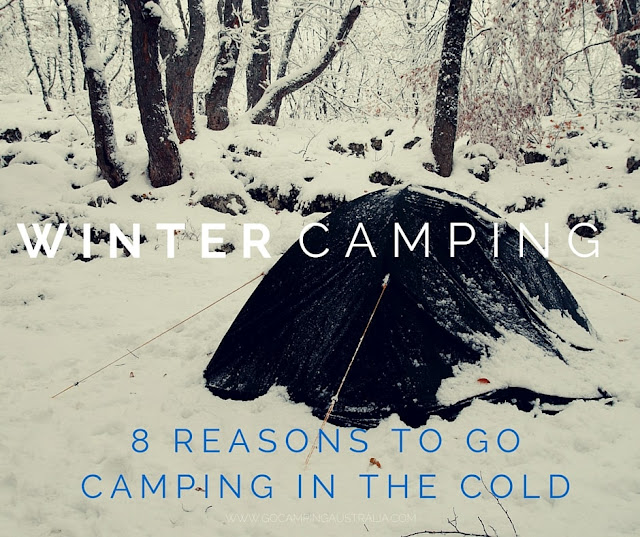
Which category of camper do you fall into now the weather is cooling down?
(a) With the cooler weather coming on, you put your camping gear away for the next few months.
Whilst the campfires are lovely, it’s just too damn cold outdoors.
(b) You start getting ready for winter camping – your favourite time of the year to be outdoors.
(c) You don’t care about the seasons. You head out for a camping trip any time of the year!
Winter camping can polarise campers.
If you think you belong to a group (a) or know someone in this group, then this story is for you (or them). You might just find enough reasons to head outdoors.
We also include a few reasons why going camping in winter isn’t that great, just to keep everyone happy.
Reasons to go in Winter
(1) Fewer People
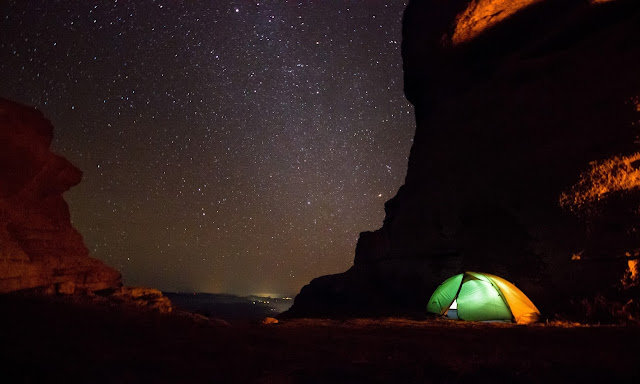
Depending on where you go camping, the winter season means fewer people at the campsites.
If you are a camper in the southern half of Australia, you will notice this the most.
The campsites that are so popular in summer (think of all the camping locations that have ballot systems in peak summer periods or the bookings online which are all sold out months in advance) are not so appealing in winter.
Many of the popular online bookings are for sites near water, which is highly desirable in the warm months. In winter, your need to take a dip in the ocean or river isn’t a priority.
Summer camping also coincides with the longest school holidays of the year so families are out in their droves. School sporting commitments are also generally on hold for summer. In winter, some sports continue throughout the shorter holiday breaks. That reduces the chances of people being able to get away for a winter weekend break.
There is an exception to the “fewer people camping in winter”, and that is if you go camping in the top half of Australia. Winter camping is peak season in the northern parts of Australia due to the mild temperatures at this time of year, making it a more appealing option for those who want to escape the chilly southern days.
(2) Fewer Insects/Snakes
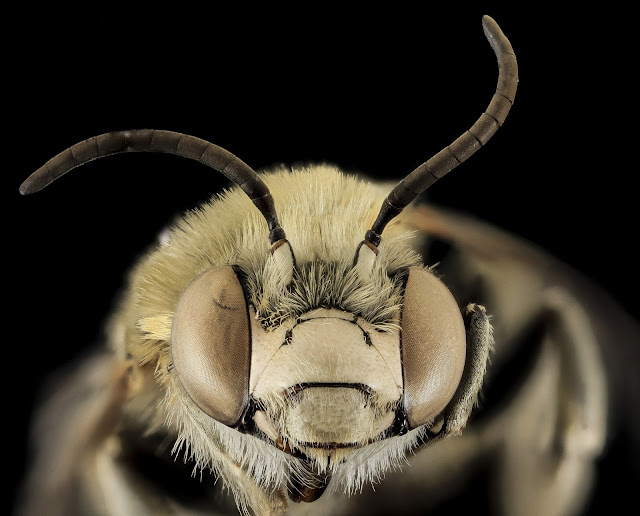
You will not be swatting flies constantly.
That fact alone is a big plus for winter camping.
Flies cannot survive the wet and cold (which is more typical for Southern Australia).
Once again, those in the north will not be as lucky in avoiding them – they will keep breeding in warmer and drier locations, but the fly population rises and falls depending on the temperature and rainfalls….so in the north, if you hate flies, you want rain and cold weather!
Other bugs go into something like a deep sleep (technical term: diapause) and wait for warmer weather.
If you want to know more about where the bugs go, an explanation is on this National Geographic page.
Mosquitos? No dramas with those. Something you get mainly in summer as, like the flies, they tend to be dormant in winter months.
Even bees take a break.
Of course, a big plus for many people is that they are less likely to wander into the bush and come across a snake. Snakes, like some insects, have gone into hibernation for the winter – but it’s not true hibernation. They can come out to bask in the winter sun, so you are not going to be 100% safe from sightings, but it is less likely.
(3) Excuse to purchase better gear
If you are heading out winter camping, you need to be warm. This means buying good gear that will do the job.
Think about 4 important areas that need to be considered for winter camping
– Sleeping Bag
– Mattress/Cot
– Shelter
– Clothing
Make sure your camping equipment suits cooler weather.
With your sleeping bag, check the temperature rating on it. If the rating is high, you know you might need something extra to keep you warm. If you don’t want to purchase another sleeping bag, you will have to prepare for how you want to increase the warmth of your existing sleeping bag (eg. extra blankets, liners, another sleeping bag within the first sleeping bag).
- If you are not sure about sleeping bag choices, then read How to Choose A Sleeping Bag.
- Don’t forget the importance of your self inflating mattress too. Guide on self-inflating mattresses is here, so check that story out, before you buy.
If you have slept on an air mattress during summer, you might find that’s not going to work out too well for you in winter. Like the sleeping bag, what you sleep on could affect much you enjoy the night (and whole trip). If you have a stretcher, then that too is going to be a different experience in winter. Cold air circulates around you and underneath you so extra padding underneath you might be required.
- Find out more about choosing a camp stretcher to see if getting off the ground is something you need to think about this winter.
Just check your gear is ready for cooler weather.
The same applies to your winter clothing. It can be so cold at night, so make sure you bring clothes that will help keep you warm. It’s all about layering.
So what does that actually mean? We have the guide to help you understand. Read how to layer your clothes. It’s a quick read and you will learn how to stay warm the right way.
(4) Campfires
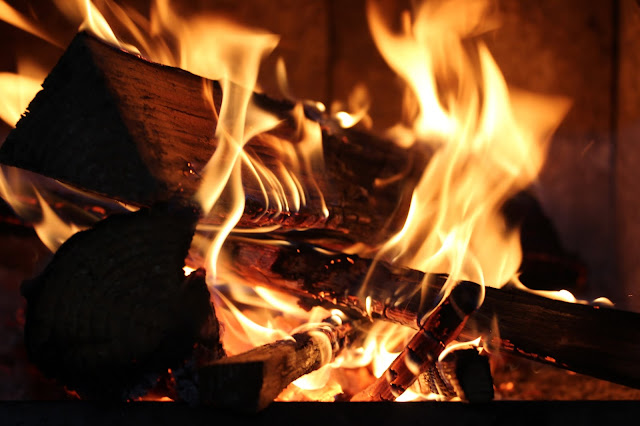
In summer, fire restrictions mean many locations don’t allow campfires. And a campfire is a highlight of camping right?
In winter, those restrictions are generally not in place (though of course, always check). If you need to know how to choose the perfect spot for a campfire, then read “How to Choose A Campfire Location”. It’s important you get this right.
Winter camping can mean a campfire in the morning, and sometimes lunch, and then dinner. And with campfires mean wonderful cooking opportunities, lots of camp oven food, and other delicious foods.
Cooking in summer at the campsite can be quite limiting without a campfire, but winter offers a vast array of cooking techniques.
We have written about some campfire food options previously, so if you need inspiration, make sure you read about
Gourmet Jaffles
Foil Pack Cooking
Food to cook on a stick over a campfire
Most of those recipes can’t be cooked in summer!
(5) You can eat more

This is not something I made up, though it does sound like it.
Eating generates heat and warms the body. This warming effect is known as thermogenesis. And keeping warm is crucial. It’s more important than staying dry.
So fuel your body.
In saying this, exercise will also help keep you warm. So moderation with your food intake is still recommended.
Added bonus: sitting around with a hot drink in your hand is so much better in winter. It’s practically therapeutic. We have 9 suggestions on hot drinks for camping, that we think you will love!
- Stuck for meal ideas as a beginner camper? See our Beginner Food Guide to Camping.
(6) Costs
If you are staying in an established campground (not a National Park or free camping obviously), they frequently will have peak rates and off-peak. Winter camping, except for long weekends and school holidays, tends to fall into off-peak, so your camping costs are a bit cheaper.
It may not be a lot of cash saved, but some are better than nothing.
(7) Cooler in a tent
Ever stepped into a tent/camper trailer in the middle of summer and nearly expired on the spot? Summer makes some shelters unbearable to be in during the day. If you want to have a lie down during the day, then your shelter is like an oven, baking you and whilst being basted by your own sweat.
Now, in winter, the tent is naturally cooler, and a safe haven from wind and rain. You don’t mind being in the tent in the middle of the day if you have to. In fact, it can be quite nice to snuggle in a tent, with a good book if the weather isn’t being kind. Winter camping makes this a possibility.
One thing that’s worth noting about winter camping. You are cold, so you seal up the tent so no cold air comes in to wake you. The downside to this? Condensation in the tent. So you need to read up on how to minimise condensation in a tent or suffer the consequences eg. you are soggy in the morning.
(8) Bragging rights
If your friends are summer campers (or non-campers), you can impress them with your outdoor hardiness.
- Your skills at campfire building.
- Camp oven finesse.
- Ability to survive and not freeze.
- If you can camp in the snow, even better. That’s showing true grit.
Reasons not to camp in Winter
Well, there is going to have been something really bad to make you not want to go camping in winter, especially after reading all the good points above. So this might be a short section.
But in order to be fair, here we present the reasons why you don’t want to camp in winter.
(1) It’s very cold

Yes, this an undeniable fact and probably the major reason why you don’t want to camp in winter.
In Australia, are winters are considered mild compared to say North American and European winters. They deal with snow and blizzards for their winter trips, so for us to complain about winter camping, we look pretty soft in comparison.
I read a tip for winter camping, which was to dig a kitchen area in the snow, so you have somewhere to sit in whilst melting snow. That’s hard-core camping.
You can camp in the snow in Australia, but we won’t be covering that here because it’s not as common for us.
But it is cold here and moving away from your campfire, isn’t always fun. Getting ready for bed in icy conditions isn’t enjoyable either. Toilet trips at night are delayed as long as possible to avoid the cold night air because you know you are going to take ages to warm up again.
We have put together tips for keeping warm when camping in winter, and they will help make it more bearable. You can definitely camp in winter, but it’s about being prepared for the drop in temperatures.
But the fact that we need to have to take all these measures to get warm and stay warm can be a little off-putting for campers.
(2) Too much gear
A positive of winter camping is having all this gear to help make winter camping enjoyable. But a negative is that you need it in the first place.
Additional clothing means you are taking a lot more with you in the car (and it was full enough in summer). It all begins to seem a bit like hard work.
The need to wear so much clothing sitting around at night, and then have to get out of that gear, into other clean clothes for bed can be torture on a cold night. It’s so tempting just to climb straight into bed fully dressed.
Reality is that you can get a lot of gear that is collapsible – all year round – to save space. See collapsible camping gear ideas and items at this story.
(3) Too many people
If you are in the Top End in winter, it’s busy up there. All the campers who can escape the cold have gone up to the north of Australia. Iconic locations and camping spots are busy and you have to book months ahead to get a spot in places like Broome.
Remember that whilst in the southern states you may be the only one at a campsite, up in parts of the north, your biggest worry won’t be choosing a campsite; it will be finding one with a vacancy.
(4) Campfires are a must
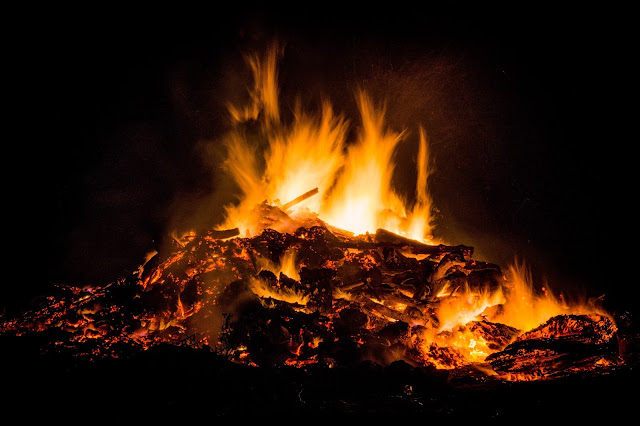
Campfires are lovely and we have covered their benefits in winter already in this story, but you can become extremely dependent upon them for your warmth, to the extent you don’t want to leave the fire at all.
You spend all your time crowded around one, not wanting to do anything that takes you away from this heat source. Even getting ready for bed is delayed as it means leaving the fire. Then there is the bad dash from fire to bed.
Summer camping still has its cold nights, but you are not so dependent upon the fire to warm yourself up constantly.
Plus you stink of smoke for the entire trip because you are always near it.
Extra reading on campfires and safety – how to put out a campfire and how to choose a campfire location might be helpful, in winter or summer.
(5) Rain
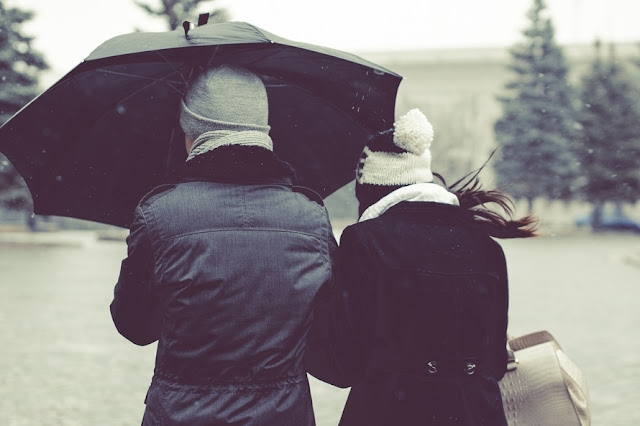
It can rain any time of the year, but being winter, the chances increase. Camping in the rain can prove challenging if you are not prepared for it, and it certainly can dampen your enthusiasm for camping if you cannot be outdoors, the firewood is all damp, and the ground is turning into mud.
If you are not keen on the cold, then being rained upon as well, could be a big deterrent to winter camping.
We list tips to make camping in the rain easier. Read up on ways to make camping in the rain more bearable if you have to go camping.
The Verdict on Winter Camping
The positives of winter camping do outweigh the negatives.
If you choose to venture into winter camping for the first time, our advice is to be prepared
for the weather – the cold and the rain.
There are many benefits of camping at this time of the year, but it’s about being ready for it.
But it’s going to come down to what you enjoy doing when camping. If you truly hate winter, even all the positives of this story may not be enough to entice you to leave home.
Don’t knock it until you have tried it though! You might just get converted to winter camping……
This story was first published in 2016 and has been updated to maintain accuracy.


